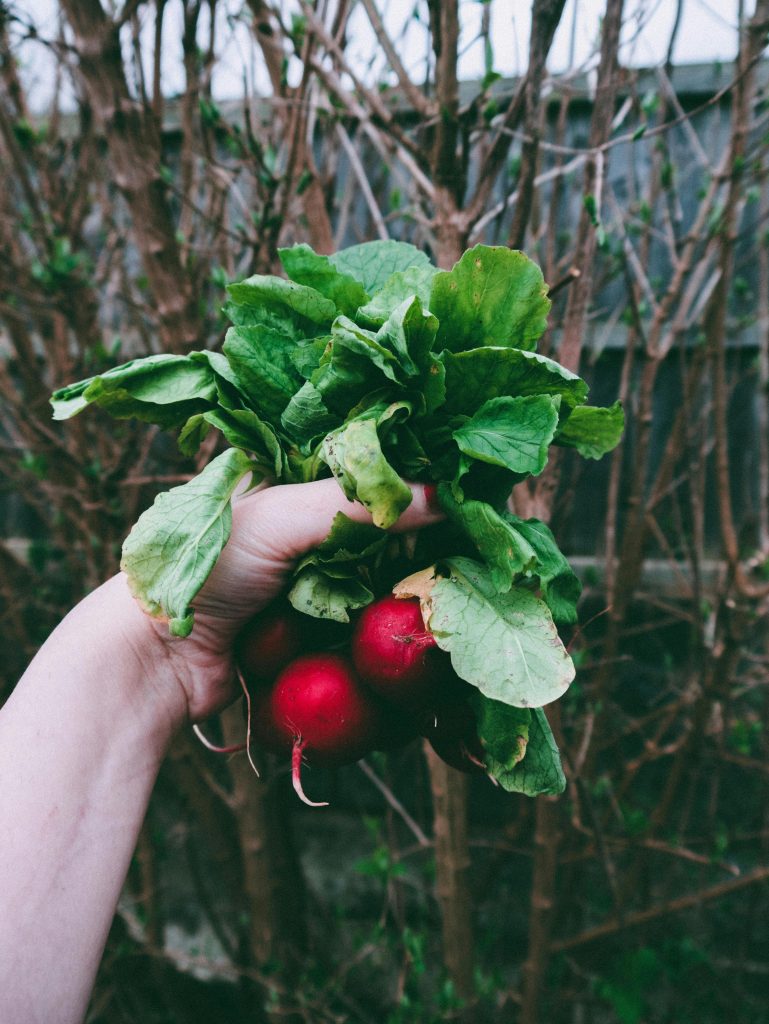You’d like to start growing your own vegetables but you think it’ll take a few months at the least, right?
Wrong.
Not all vegetables take that long to go from seed to harvest. Most of the fast-growing vegetables tend to be cool weather loving plants, meaning you can plant and harvest in early spring and late fall. If you can build a cold frame, you can have veggies all winter. Fresh veggies are the key to good health. Whenever you can grow them at home, you should. You don’t need a lot of space to do it, and even a balcony will work. You can use raised beds, containers or transform a flower bed into a little produce section.

These are the 5 fastest growing vegetables, ready to harvest in just 3 to 6 weeks. You’ll want to have plenty of seeds on hand, ideally heirloom varieties, which you can purchase online or from your local nursery. Heirloom seeds are at least 50 years old, non-GMO, and allow you to harvest seeds from your crop and replant them while knowing exactly what you’ll get. Hybrid seeds are not going to produce the same crop you just harvested. Growing hybrid vegetables is a dead end as you get only get one run with them, which isn’t sustainable in a long-term survival situation. Learn about seed harvesting to ensure you always have fresh food coming. Also, you can give your seeds a little boost by soaking them in water overnight. A seed mat, which is basically a heating pad, is another way to speed up the sprouting process.
| Key takeaway: • When purchasing seeds, ensure that they are heirloom, which are 50+ years old, non-GMO and not hybrid. Then the seeds you harvest from the vegetables will grow into the plant you expect from season to season |
Radishes
Ready in 3-4 weeks
Radishes are one of the fastest-growing vegetables, typically ready to harvest in about three to four weeks from planting. Succession planting is the best option with these little veggies. That means you’ll plant a row one week and then the next week you plant another row and so on. This ensures you always have a steady supply of fresh radishes. Radishes have about 19 calories per cup. They are higher in carbs than other veggies. When you are eating to survive, this is important information. Ideally, you’ll want to combine your radish snack with one or more of the other fast-growing veggies. Radishes are almost all water, which is great for staying hydrated.

Leaf Lettuce
Ready in 4 weeks
Leaf lettuce varieties, such as romaine or butterhead, can be harvested as early as thirty days after planting. They grow quickly and can be picked as baby greens or allowed to mature for larger leaves. With lettuce, you can pluck off the outer leaves while leaving the plant in the ground. You can harvest daily. Lettuce is low in calories but high in vitamin K which is essential for good bone health.
Spinach
Ready in 4-6 weeks
Spinach is another quick grower, ready to harvest in about four to six weeks. It thrives in cooler weather and can be planted in early spring or fall for a rapid and nutritious crop. Like lettuce, you can pluck young leaves while leaving the spinach plant in the ground. Spinach is high in protein and fiber and has a few more calories. If you can only grow one vegetable, this is the one you want.
Spinach is a very good source of Vitamins A, C, K1, Folic acid, Iron and Calcium.

Green Onions (Scallions)
Ready in 4-6 weeks
Green onions are ready to harvest in about four to six weeks. They are easy to grow and can be used in a variety of dishes for a pop of flavor. Flavor will matter when it comes to survival. Yes, you might force yourself to eat bland, flavorless food but why when you don’t have to? And green onions have antibacterial properties which is a big deal when you’re trying to stay healthy. They are not high in calories but they do contain fiber.

Turnips
Ready in 4 weeks
Turnips can be harvested for their greens in about thirty days and for their roots in six to ten weeks. They are versatile and can be grown in both spring and fall for a quick yield. Turnips are high in fiber and calcium. You can harvest a few of the greens while leaving the plant in the ground to keep the turnip itself still growing. You’ll want to harvest the outer leaves and leave the new leaves. You don’t want to take all of the leaves at once. Ideally, you’ll want to space out your leaf harvesting to allow the turnip to continue growing.
